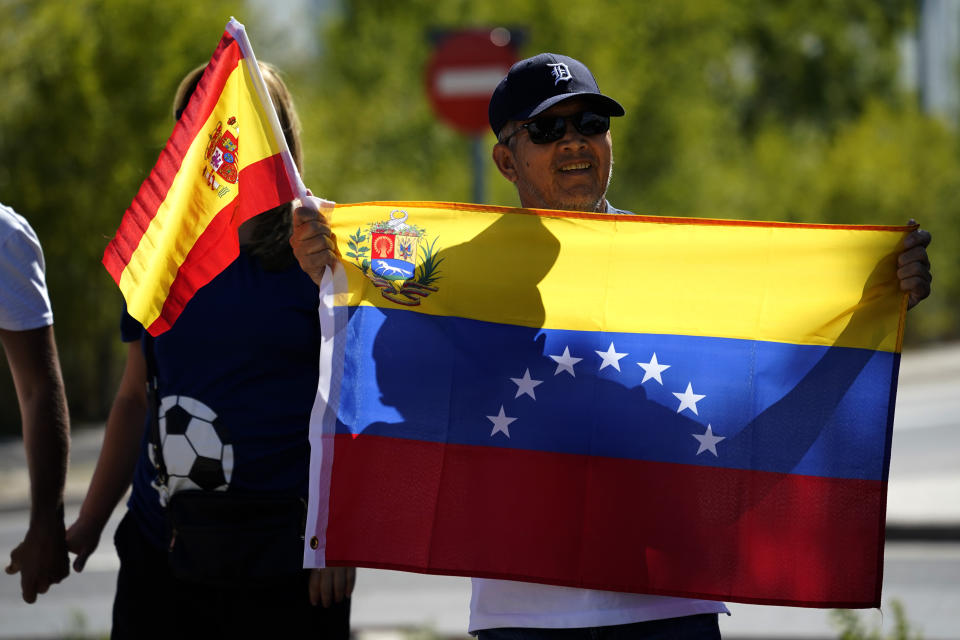Venezuelan opposition still hopes to unseat Maduro despite their candidate's exile
CARACAS, Venezuela (AP) — Venezuelan opposition leader Maria Corina Machado tried to reassure supporters Monday that her coalition still hopes to gain control of the presidency despite the departure into exile of their candidate Edmundo González Urrutia.
Machado's group maintains that it has evidence that González won the July 28 presidential election by a wide margin against Venezuela's authoritarian incumbent president, Nicolás Maduro, despite his claim to have won.
Machado told an online meeting Monday of opposition leaders, reporters and others that her group still hopes to see Maduro leave office in January, even if for voters those hopes seem increasingly tenuous since González’s decision to flee into exile to Spain over the weekend.
She said the former diplomat could fulfill the role of opposition candidate “with much greater protection and security” from abroad. She herself has gone into hiding in the weeks since the election, while Maduro's government has arrested more than 2,000 people and cracked down on demonstrations throughout the country protesting the election results.
“Nothing has changed,” she insisted from an undisclosed location in Venezuela.
González, 75, landed Sunday at a military airport near Madrid, accompanied by his wife and Spanish officials. His departure was announced late Saturday by Venezuela’s government, which days earlier had ordered his arrest.
González had not been seen publicly since the week after the vote, when he and Machado announced not only that their campaign had obtained vote tallies from over two-thirds of the electronic voting machines used in the election but also that they had published them online to show the world that Maduro had lost the contest.
Their assertions stunned supporters and critics alike, because the National Electoral Council had declared Maduro the winner hours after polls closed, giving him a third six-year term set to begin on Jan. 10. The panel, stacked with ruling party loyalists, never released detailed vote tallies to support Maduro’s claim to victory.
González had never run for office before the presidential election. The leadership of the Unitary Platform opposition coalition chose him as candidate after the government banned Machado from running for office and did not allow her hand-picked successor to register for the contest.
Machado became his key surrogate, and they campaigned together.
González said in a statement Monday that he is not motived by “personal ambition." He wrote that he remains committed to “the realization of the popular will,” but he did not explain how he intends to continue to work toward that goal.
“My commitment is not based on personal ambition, this decision is a gesture that reaches out to everyone, and I hope that it will be reciprocated as such,” González said.
Machado told reporters that González is “Venezuela’s president-elect” regardless of his location and will remain so “until the day he is sworn in as president.” She did not offer any details of the strategy that could lead to that result.
Experts from the United Nations and the Carter Center, which at the invitation of Maduro’s government observed the election, determined the results announced by electoral authorities lacked credibility.
In a statement critical of the election, the U.N. experts stopped short of validating the opposition’s claim to victory, but they said the faction’s voting records published online appear to exhibit all of the original security features.




